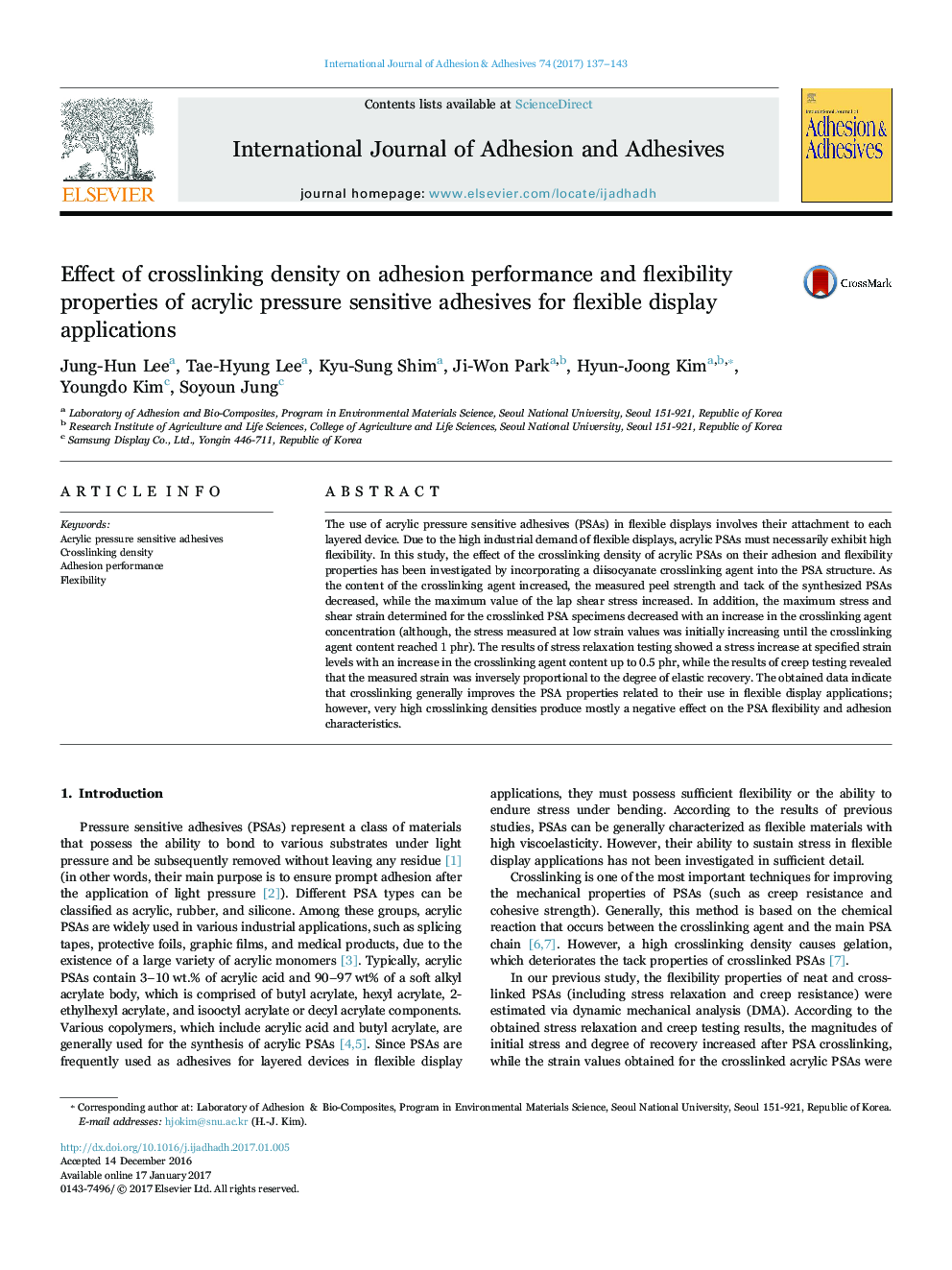| Article ID | Journal | Published Year | Pages | File Type |
|---|---|---|---|---|
| 5014746 | International Journal of Adhesion and Adhesives | 2017 | 7 Pages |
Abstract
The use of acrylic pressure sensitive adhesives (PSAs) in flexible displays involves their attachment to each layered device. Due to the high industrial demand of flexible displays, acrylic PSAs must necessarily exhibit high flexibility. In this study, the effect of the crosslinking density of acrylic PSAs on their adhesion and flexibility properties has been investigated by incorporating a diisocyanate crosslinking agent into the PSA structure. As the content of the crosslinking agent increased, the measured peel strength and tack of the synthesized PSAs decreased, while the maximum value of the lap shear stress increased. In addition, the maximum stress and shear strain determined for the crosslinked PSA specimens decreased with an increase in the crosslinking agent concentration (although, the stress measured at low strain values was initially increasing until the crosslinking agent content reached 1 phr). The results of stress relaxation testing showed a stress increase at specified strain levels with an increase in the crosslinking agent content up to 0.5 phr, while the results of creep testing revealed that the measured strain was inversely proportional to the degree of elastic recovery. The obtained data indicate that crosslinking generally improves the PSA properties related to their use in flexible display applications; however, very high crosslinking densities produce mostly a negative effect on the PSA flexibility and adhesion characteristics.
Related Topics
Physical Sciences and Engineering
Engineering
Mechanical Engineering
Authors
Jung-Hun Lee, Tae-Hyung Lee, Kyu-Sung Shim, Ji-Won Park, Hyun-Joong Kim, Youngdo Kim, Soyoun Jung,
